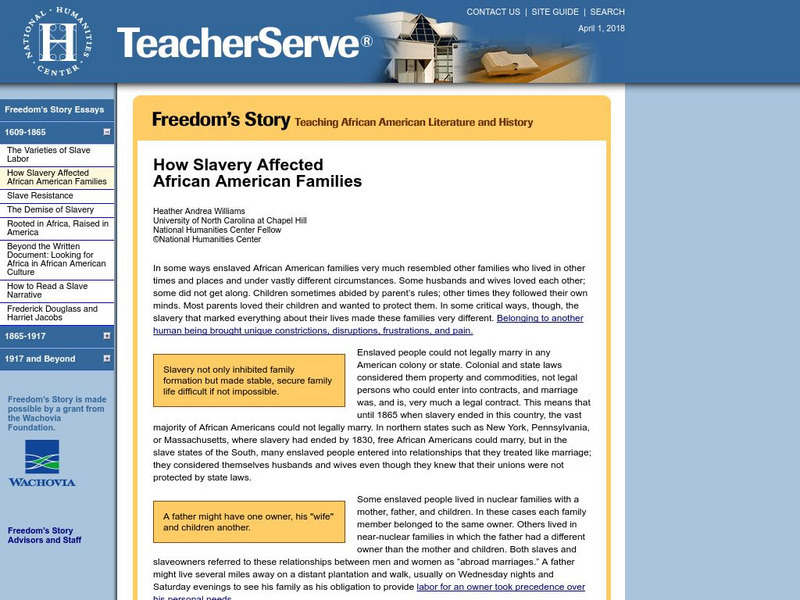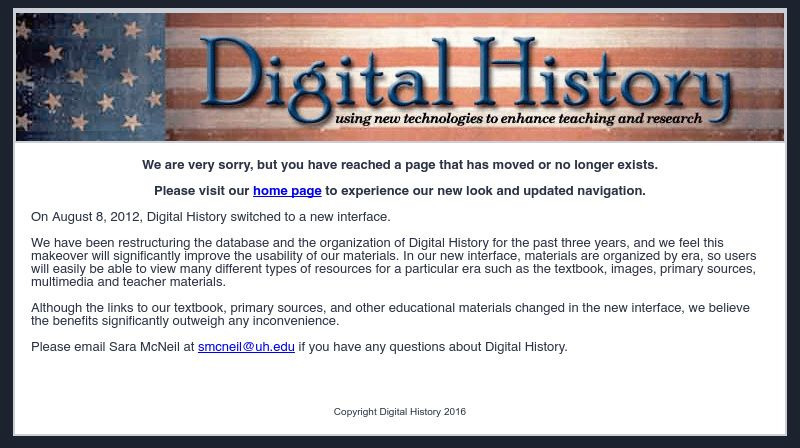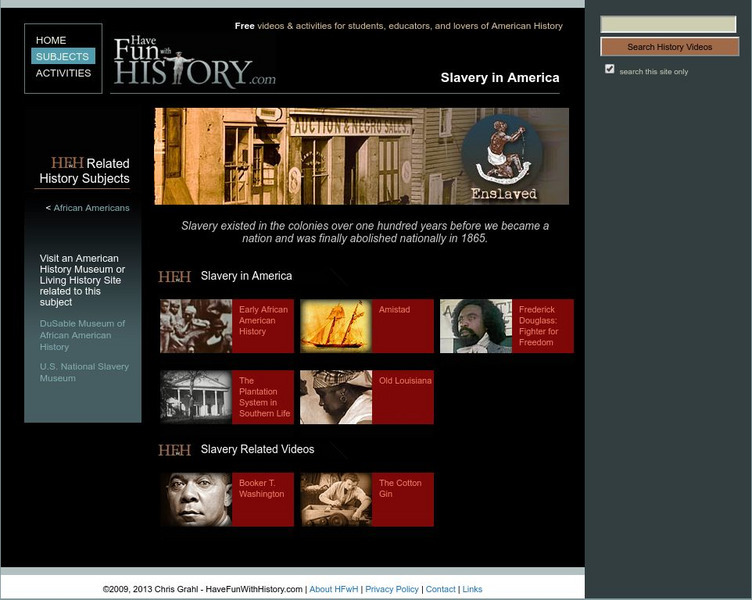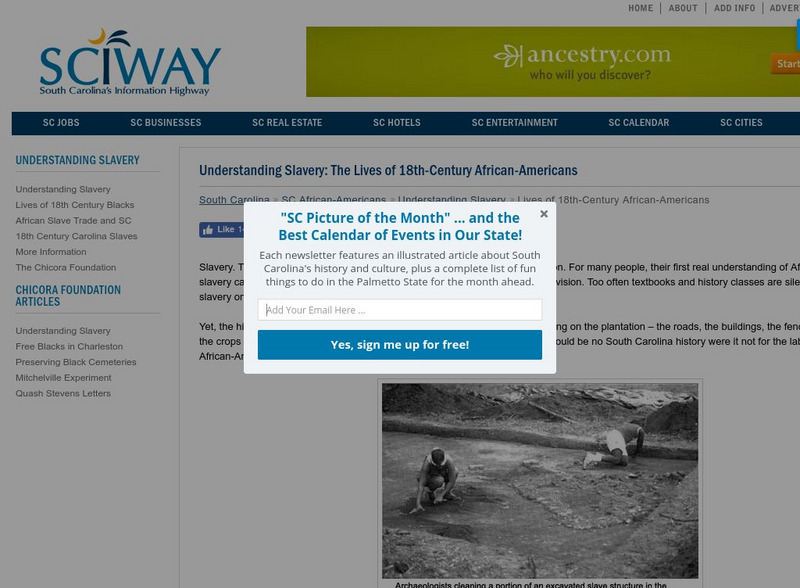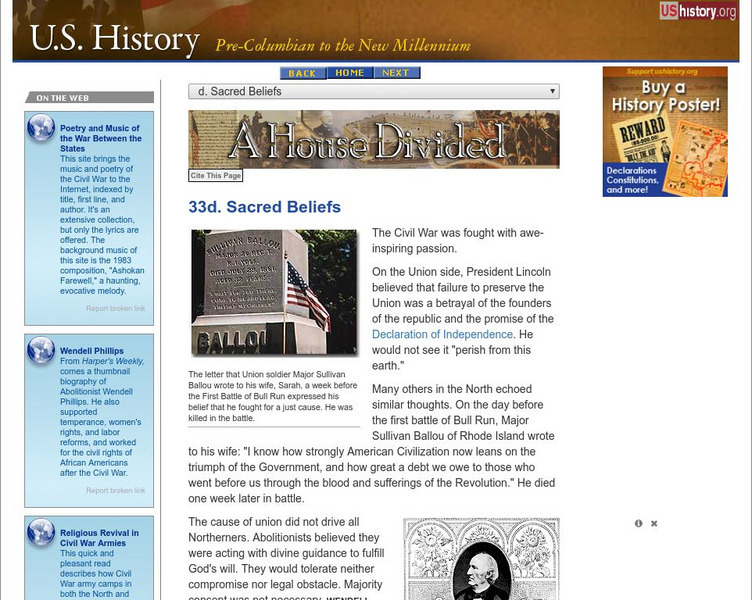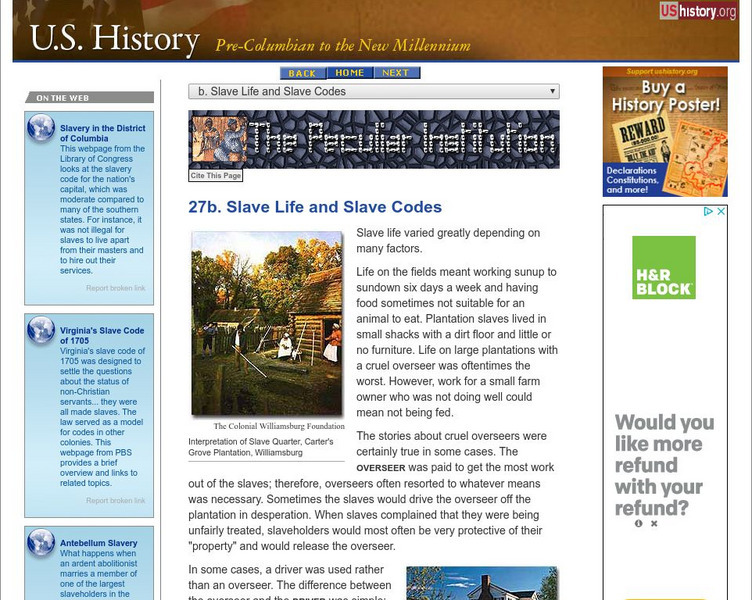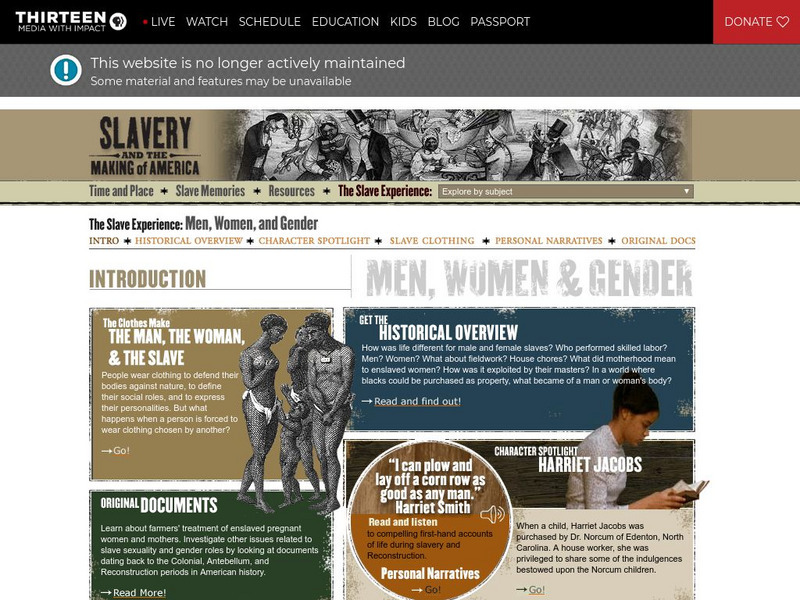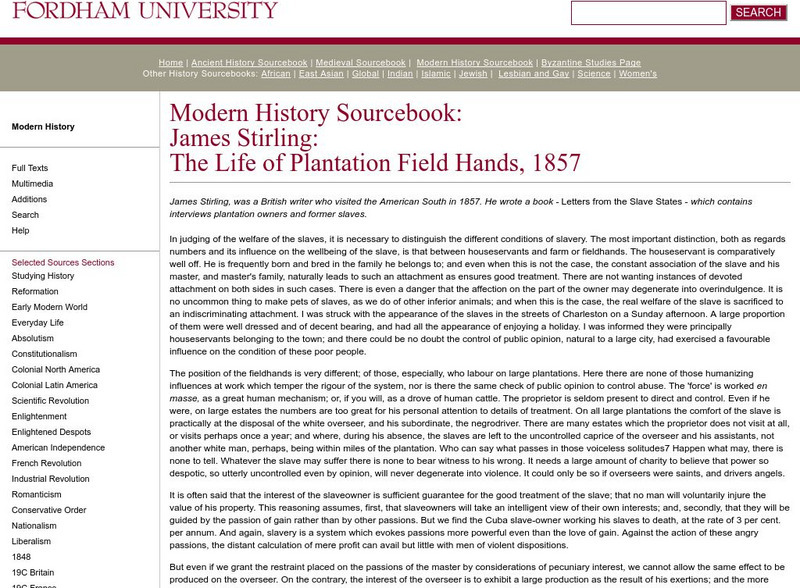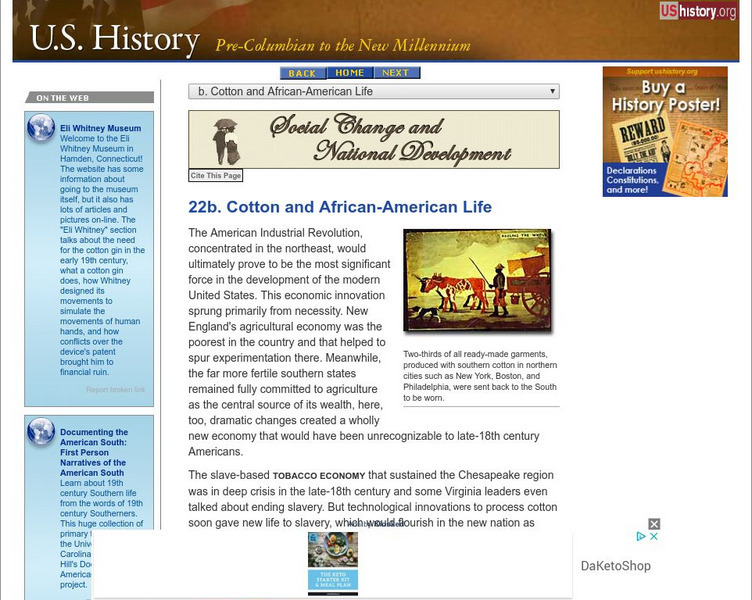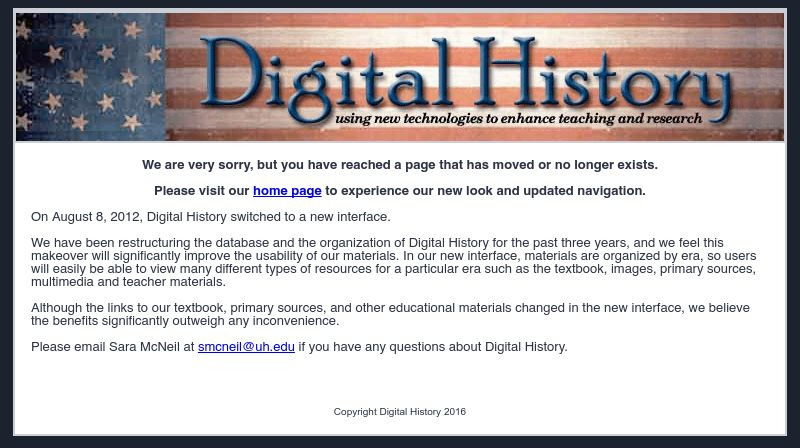Digital History
Digital History: Solomon Northup and Mammy Harriet [Pdf]
Solomon Northrup, a free man, was captured and sold into slavery. Read his account of what plantation life was like from his book, 12 Years a Slave. In addition, read the remembrances of a house slave and what her life was like. [pdf]
Digital History
Digital History: The Life Cycle of a Slave [Pdf]
Read excerpts from these slave and ex-slave narratives to find out what the life of a slave was like through all stages of life--childhood, marriage, and old age. See the heartbreak of mothers being separated from their children, and...
Digital History
Digital History: Responses to Slavery: Spirituals and Stories [Pdf]
Find the lyrics to spirituals slaves sang that gave a glimpse into their lives and gave them hope for freedom. In addition, read some of the stories slaves told that showed how they offered passive resistance to their plight of slavery....
National Humanities Center
National Humanities Center: Teacher Serve: How Slavery Affected African American Families
University of North Carolina at Chapel Hill professor Heather Andrea Williams discusses the lives of enslaved African American families and how slavery made their lives different from other families.
Digital History
Digital History: What Was Life Like Under Slavery?
A sobering look at the life of the plantation slave in the decades before the Civil War. Read about the malnutrition, severe treatment, and inadequate living conditions.
Digital History
Digital History: Slave Labor
Not all slaves worked in the fields. Read about the jobs of many skilled workers who were slaves in the South. Read also about the slaves who were field hands and find out about the harsh labor conditions they endured.
Digital History
Digital History: Slave Family Life
An extensive look at the family life of slaves and the attempts to maintain family ties under daunting circumstances. Read about slave marriages, the splitting up of families, and the ways the family kinship networks operated on the...
Have Fun With History
Have Fun With History: Slavery in America
Learning module includes multi-media reasources and links for students and teachers learning about slavery in America. Includes several videos on various historical topics on slavery.
Duke University
Plantation America: The Work of Slaves
On this webpage, the primary text contains selected entries from letters and journals. It also describes slaves delivering rice to Savannah, slave numbers, their condition on a plantation, how slaves were used, and a map and a drawing of...
Alabama Department of Archives and History
Adah: Using Primary Sources in the Classroom: Slavery Unit
A website with lesson plans for various grade levels on slavery, using primary sources.
Understanding Slavery Initiative
Understanding Slavery Initiative: Plantation Life: Personal Accounts
Read first-hand accounts of former slaves, and learn about the devastating realities of the Transatlantic slave trade in the 18th and early 19th centuries.
Other
Understanding Slavery: The Lives of Eighteenth Century African Americans
Comprehensive description of slaves in South Carolina. Click on the topics on the left to take you to a wealth of information about the lives of slaves in South Carolina.
Independence Hall Association
U.s. History: Sacred Beliefs
At the beginning of the Civil War people in both the North and the South held firm beliefs about the reasons for the war. Some wanted to preserve the Union, others to end slavery. In the South the question was about states' rights and...
Independence Hall Association
U.s. History: Slave Life and Slave Codes
A description of what life was like for slaves on plantations in the South. See the difference in treatment betwee field slaves and domestic slaves. and find examples of laws enacted under slave codes in several states.
Independence Hall Association
U.s. History: The Peculiar Institution
A very brief look at the "Peculiar Institution" of slavery in the South before the Civil War. Read about how slavery became so entrenced and why it drove a wedge between the North and South.
PBS
Wnet: Thirteen: Slavery & Making of America: The Slave Experience: Men, Women & Gender
Learn about issues related to slave gender roles at this PBS series site that features illustrations and documents dating back to the Colonial, Antebellum, and Reconstruction periods in American history.
PBS
Wnet: Thirteen: The Slave Experience: Family
Using oral histories and primary sources, the story of slave family life is told.
Internet History Sourcebooks Project
Fordham University: Modern History Sourcebook: Life of Plantation Field Hands, 1857
Fordham University provides this account of U.S. slavery that was written by a British writer who toured the American South in 1857. It makes interesting comparisons of house servants, field hands, and small farmers' slaves.
Library of Congress
Loc: Learning Page: Pre Civil War African American Slavery
Get an overview of slavery in the South, but also see physical evidence in photographs and historical narratives from slaves of the time.
Independence Hall Association
U.s. History: Cotton and African American Life
But for the invention of the cotton gin, slavery perhaps would have died out in the United States in the early 19th century. Read about why technological advances caused the spread of slavery in the South and read about how slaves clung...
Digital History
Digital History: Enslaved African Americans and Religious Revivalism
A brief look at the role of Christianity in the lives of slaves in the 1800s. See how evangelicalism was reflected in the way slaves practiced their religion.
Other
Antebellum Slavery: Non Plantation Slavery
Resource provides information on slave life outside of the traditional plantation life, and discusses slave labor and their occupations.
Independence Hall Association
U.s. History: Life in the Plantation South
Plantation life was a dichotomy between rich and poor, land owners and laborers. Read about the life of the rich plantation owners and their families. See how the role of women was different on the plantations.


![Digital History: Solomon Northup and Mammy Harriet [Pdf] Website Digital History: Solomon Northup and Mammy Harriet [Pdf] Website](https://d15y2dacu3jp90.cloudfront.net/images/attachment_defaults/resource/large/FPO-knovation.png)
